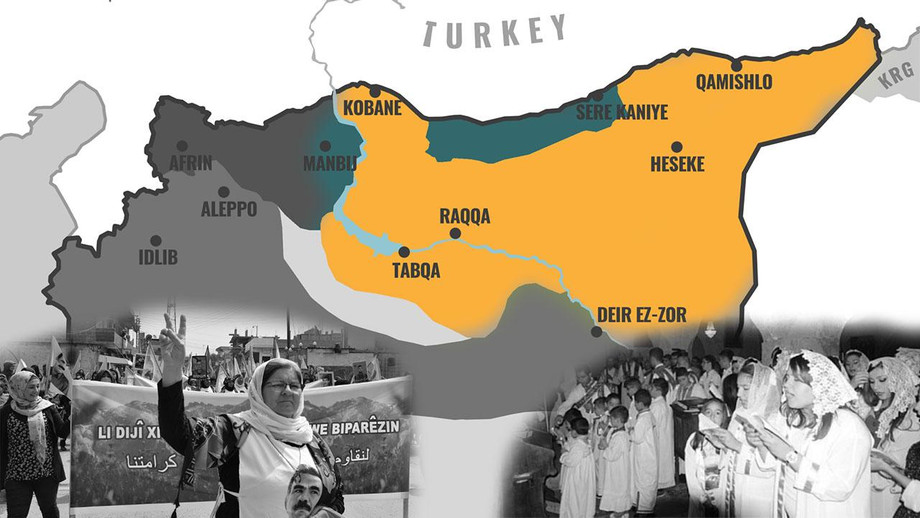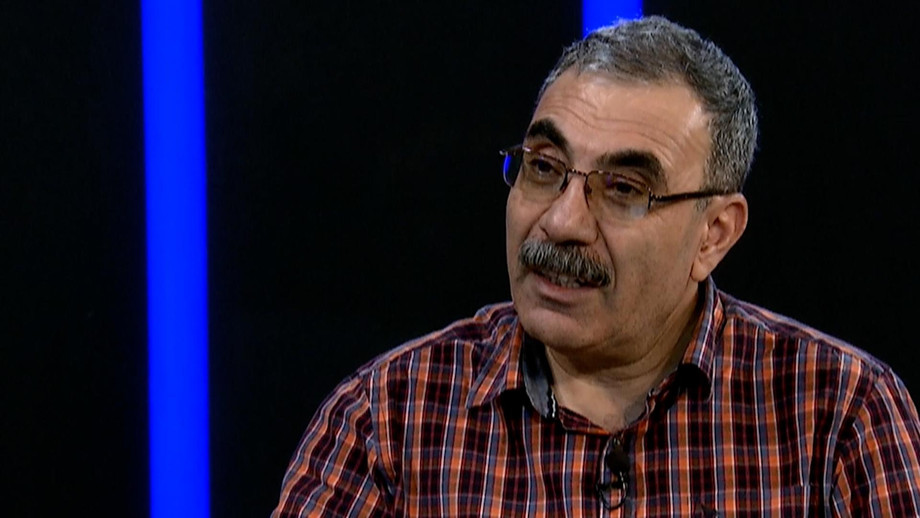The hope raised by the fall of the Ba'athist dictatorship has been swept away by Ankara's offensives, which exploit the vacuum left by Bashar al-Assad's departure to weaken the autonomous administration of northeast Syria. In Rojava, the Kurds express deep concern over relentless Turkish-backed group attacks.
Azad Hajiaghaei
After Bashar al-Assad’s fall, everything in the Middle East remains precariously fragile, and it looks like the domino effect is far from over. Assad’s downfall will have profound repercussions in Lebanon, Iraq, and, undoubtedly, in Iran. On one hand, the Iranian axis is collapsing across the region, and this shift is likely to be marked by extreme violence.
Erdoğan’s Turkey stands as the major beneficiary, at least for now, positioning itself as the sole power capable of challenging the emerging Israeli hegemony in the Middle East. Yet, amid the significant tensions and rivalries among regional players, how will the Kurds in Syria maintain their socio-political survival?
Undoubtedly, after the establishment the Autonomous Administration of North and East Syria (AANES), the Kurds in northern and eastern Syria (Rojava) could sustained their socio-political existence, considering the region’s diversity.
However, following Assad’s fall, the hope sparked by the collapse of the Ba’athist dictatorship has been quashed by Ankara’s offensives, which exploit the power vacuum left by Bashar al-Assad’s departure to weaken the AANES. In Qamishli, the Kurds express grave concerns about Kobane, which is under constant bombardment from Turkish drones.
There are, of course, countless uncertainties and reasons for concern among the Kurds in Syria. The group Hay’at Tahrir al-Sham (HTS), despite its superficial rebranding, remains jihadist and fundamentalist. Its leader, Abu Mohammad al-Jolani, currently exhibits remarkable political acumen in seizing power, yet one must not be naive about his true intentions and the nature of his movement.
The Syrian National Army (SNA), an armed group backed by the Turkish state, is relentlessly launching attacks on the Manbij (Minbij) and Kobane (Kobani) regions.
How can a civil war between the Kurds and Turkish-backed mercenaries be averted, given the Kurds’ control over significant areas in the east and north of the country? Furthermore, what actions can be anticipated from Turkish-backed Islamic groups, particularly in light of their ongoing demographic engineering efforts to capture entire regions?
Following the rapid collapse of the Assad regime, Syria’s political landscape is undergoing significant transformation. Externally, the Kurds in Syria face direct military pressure from Turkey on one side and attacks from the SNA on the other. It is becoming increasingly clear that, amid these escalating tensions, the AANES, the SNA, and HTS are set to become the principal actors shaping Syria’s future.
However, it must not be overlooked that the militias aligned with Turkey under the SNA banner have long been accused of committing war crimes by the United Nations and Amnesty International. These charges include the rape of women, mass killings of Kurdish civilians, torture, electrocution, executions, and the use of caged civilians as human shields. During previous Turkish military campaigns, these militias were responsible for the deaths of hundreds and the displacement of hundreds of thousands of civilians.
Meanwhile, the Turkish army leadership and HTS have maintained long-standing coordination through joint operation rooms. The SNA militias participating in the latest operations are funded, trained, and directed by Turkey, with Turkish flags flying over the citadel in Aleppo (Heleb) following its capture. This symbolised a nostalgic return to its Ottoman-era status as a prized possession, as ultranationalist Turkish politicians celebrated its significance. As analyst Can points out, Turkey will undoubtedly “use whatever gains it has” against the Kurds, both domestically and internationally.
In parallel, the Kurds and the residents of the AANES believe that political cohesion and unity are essential to ensuring their participation in Syria’s future political process. Luqman Ahmi, spokesperson for the AANES argues that Kurdish unity is crucial to their involvement in the upcoming political framework. However, given the threats posed by the Turkish state and Turkish-backed Syrian groups, he stresses the need for preparedness and a readiness for all eventualities.
Nonetheless, political observers remain sceptical of the rhetoric espoused by the leaders of HTS, deferring any judgment until the group’s actions become clearer. In an interview with Voice of America (VOA), Walid Choli expressed doubts about Syria’s future, stating that only through tangible action can HTS’s promises be trusted. He added that, to assess the group’s status, it is essential to evaluate its treatment of national and religious minorities in Syria, particularly with regard to its removal from the list of designated terrorist organisations.
In this context, Aldar Khalil, reflecting on the hopes and challenges ahead, views the period following Assad’s collapse as the beginning of a new revolutionary phase. He believes that the death of Bashar al-Assad and the fall of the Ba’ath regime will mark a new chapter in Syria’s history, yet he maintains that the revolution is far from over. For Khalil, a future Syria must be democratic, allowing all its citizens to live in freedom.
Aldar Khalil is a senior Kurdish political leader and a prominent figure in the Autonomous Administration of North and East Syria (AANES)
Regarding the forces that currently hold power in Damascus, particularly HTS, Khalil acknowledges the presence of active and influential players in the Syrian political landscape. He highlights that the Democratic Union Party (PYD) has made efforts to engage with all factions in an attempt to foster dialogue.
Intertwining theory and praxis, the Kurdish movement in the Middle East—particularly in Rojava—has demonstrated its potential to play a pivotal role in any viable future settlement for Syria. The AANES has consistently signalled its pragmatic willingness to cooperate with a reformed Damascus administration, provided it shows a genuine commitment to devolution, as well as to women’s and minority rights.
Hussein Maamo, the Syrian Kurdish official in London, tells Jacobin he wants to see “all Syrians involved in the decision-making process to establish a democratic, pluralistic, and secular state that remains neutral regarding religion, sects, ethnicity, and political opinion.”
Nevertheless, amidst a climate of hope and uncertainty, the Kurds appear prepared to confront the challenges ahead. Despite the situation being more fragile than ever, they remain committed to a project that embraces Syria’s ethnic, religious, and cultural diversity, demonstrating readiness for all possible scenarios.
Azad Hajiaghaei obtained his Ph.D. in Political Philosophy from Tehran University in 2018. Since 2021, he has been a postdoctoral researcher at Jagiellonian University in Kraków, Poland.



